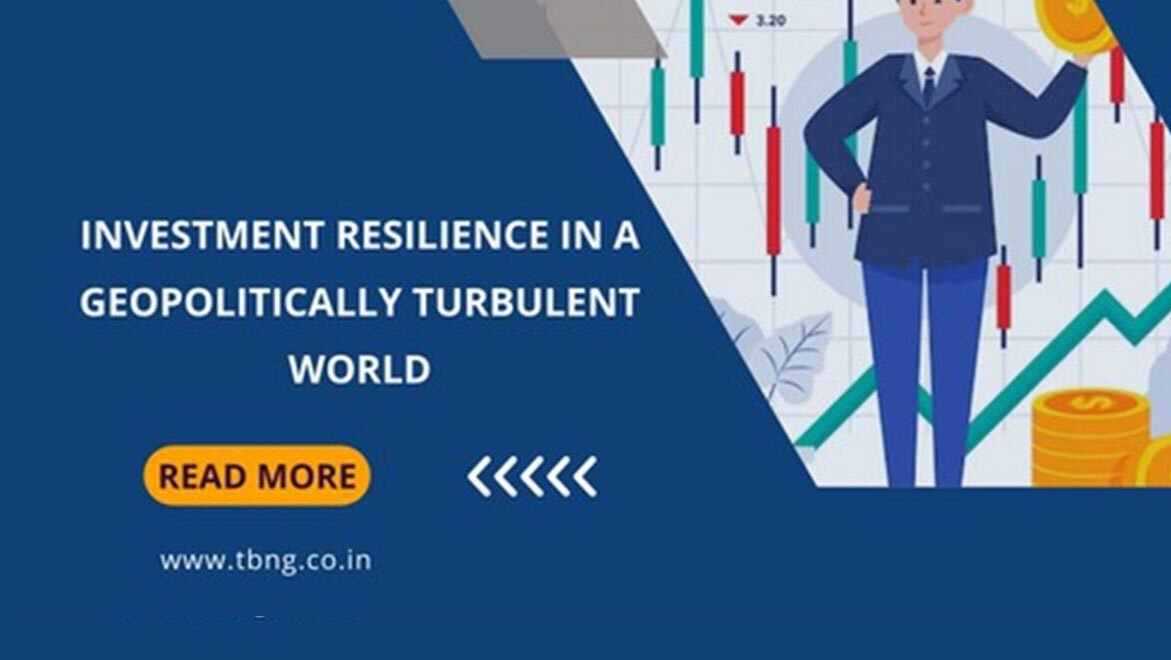In February 2022, the Russia-Ukraine war unleashed a wave of uncertainty that reverberated through global economies. This week, news of the escalating Israel-Palestine conflict has surfaced and is evolving. In our interconnected world, where nations and economies rely on each other for trade, investments, and commodities, any geopolitical event, no matter where it occurs, can send ripples across international markets. This heightened uncertainty tends to drive up inflation, oil and commodity prices, significantly affecting the financial landscape.
In today’s intricate global economy, businesses no longer operate in isolation. They span various geographical regions, catering to clients in diverse time zones and continents. This interconnectedness means that events in one corner of the world can swiftly impact stakeholders worldwide, a scenario particularly evident in the global stock market. The resulting uncertainty has caused financial markets to navigate choppy waters, leaving investors seeking guidance on navigating this new terrain while on their journey toward financial independence.
While it’s impossible to eliminate geopolitical risk from investment strategies entirely, there are ways to mitigate its impact. Remember, each major geopolitical risk event tends to pave the way for new reforms and policies within a country. Consider the liberalisation and globalisation of India in the 1990s or the post-Covid “China +1” narrative. These instances signify periods when economies opened up and gained momentum. Similarly, the “China +1” strategy post-COVID aimed to reduce dependencies on China for specific imports, boosting Indian companies’ resilience to geopolitical risks. For retail investors, identifying and investing in such companies at an early stage can yield substantial returns over the long term.
The key is to accept that uncertainties and volatility are a part of the bargain and to approach financial investments from a long-term perspective. Here are some strategies to help cushion the effects of financial uncertainties:
Diversify Your Portfolio:
It’s a fundamental principle not to put all your investments in a single entity or asset class. Diversification across asset classes or across diverse entities with the same asset class can help spread risk. This approach safeguards your wealth, as losses in one investment won’t wipe out your entire portfolio.
Implement Proper Asset Allocation:
Asset allocation is the process of dividing your investments among various asset categories, such as stocks or bonds, real estate or commodities, or even cash, based on the nature and duration of your financial goals. For instance, when approaching the maturity of a specific short-term financial goal, you may want to consider shifting your investments to short-term debt funds to reduce market volatility. Conversely, for goals over five years away, consider equity funds for potentially higher returns with enough time to recover from major setbacks.
Resisting Impulsive Reactions:
The key to successful investing in times of geopolitical unrest is to adopt a long-term perspective rather than give in to short-term market fears. The allure of quick, impulsive decisions driven by fear or panic during market fluctuations can be strong. However, yielding to such knee-jerk reactions often results in missed opportunities and poses a threat to achieving long-term financial goals. Instead, investors should maintain a composed and rational stance, firmly rooted in a meticulously crafted investment strategy.
Following a predetermined plan and taking into account the bigger economic picture helps steer clear of pitfalls and leads to more successful outcomes in the long run. Always keep in mind that maintaining discipline and giving long-term goals top priority while avoiding being influenced by fleeting market fluctuations are the keys to successful investing.


Leave a Comment